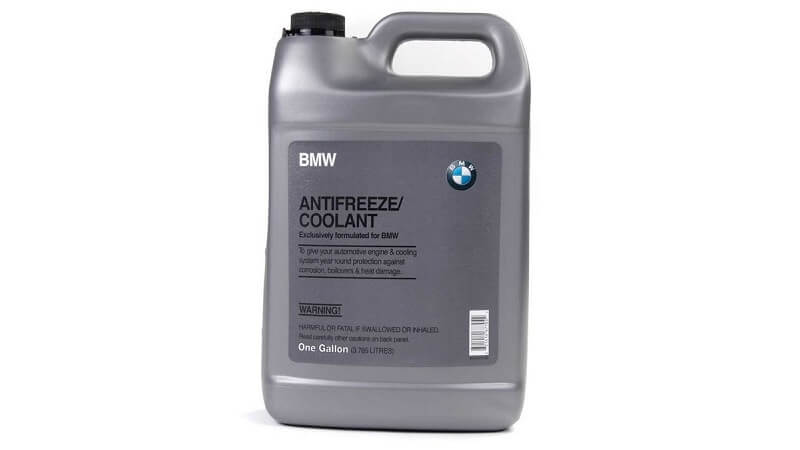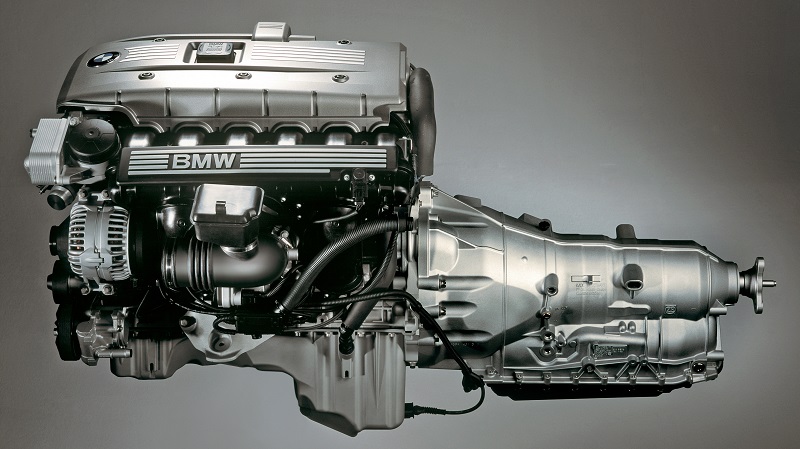If you’re looking to buy a diesel-engined fifth-gen BMW 7-Series (F01) or an X5 or X6 produced after 2008, you’re most likely looking at a Bimmer with a BMW N57 engine at its heart. The N57 is one of the German manufacturer’s more widely used diesel engines of the modern era. During its decade-long production run from 2008 to 2019, it powered several BMW models in addition to the ones mentioned above.
It’s one of the most loved diesel engines that BMW has produced recently, and it even found its way onto the ‘Ward’s 10 Best Engines’ list in 2014. This guide contains all the information you’ll need if you’re in the market for a car powered by the BMW N57 engine — from available versions to common problems you might have to deal with as an owner.

BMW N57 Engine: Available Versions
The BMW N57 engine has a total of 6 engine versions — N57D30U0, N57D30O0, N57D30O1, N57D30T0, N57D30T1, and N57S — all of which featured variable geometry turbochargers (VGTs). The terminology of the individual versions might seem rather complex, but it’s pretty straightforward when you know what you’re looking at.
The ’30’ in the name denotes that the engine displaces 3.0 L — 2,993 cc, to be precise. The following variable indicates how many turbochargers are present — ‘O’ for one unit, ‘T’ for two units, and ‘S’ for three turbochargers. The number that follows, the final variable in the name, is the version of the engine. For instance, the N57D30O1 is an updated iteration of the N57D30O0.
Here’s a breakdown of what each engine has to offer:
N57D30U0
The N57D30U0 was the least capable version of the BMW N57 engine and was produced from 2010. Peak output figures were rated at 201 hp at 4,000 rpm and 332 lb-ft of torque between 1,750-2,500 rpm.
N57D30O0
The N57D30O0 was the initial version of the BMW N57 engine, launched in 2008. It produced 241 hp at 4,000 rpm and 398 lb-ft of torque between 1,750 rpm and 3,000 rpm.
N57D30O1
The N57D30O1 was introduced in 2011 with maximum power and torque figures of 255 hp at 4,000 rpm and 413 lb-ft of torque at 1,500-3,000 rpm. BMW also released an M Performance kit for this engine, including a larger intercooler from the twin-turbo N57D30T0 engine. It boosted peak output figures to 282 hp and 442 lb-ft of torque.
N57D30T0
Featuring a twin-turbocharger setup, the N57D30T0 was capable of producing 302 hp at 4,400 rpm and 443 lb-ft of torque from 1,500-2,500 rpm. It was introduced in 2009.
N57D30T1
Launched in 2011, the N57D30T1 made 308 hp at 4,400 rpm and 465 lb-ft of torque from 1,500-2,500 rpm.
N57S
With a triple-turbo setup, the N57S was the most potent iteration of the BMW N57 engine. Peak output figures were rated at an impressive 375 hp at 4,000-4,400 rpm and 546 lb-ft of torque at 2,000-3,000 rpm.
What Cars Use the BMW N57 Engine?

The BMW N57 engine had several applications and was one of the most prominently used diesel BMW engines in the last decade. Its most common applications were on the BMW 5-Series, 7-Series, X5, and X6, but it also featured on select BMW 3-Series and X4 models. Here’s a complete list of all the models that featured the BMW N57 engine:
N57D30U0
The N57D30U0 only had a couple of applications and was used on entry-level BMW models such as the BMW 525d (F10) and the BMW 325d (E90) in 2010 and 2011.
N57D30O0
The N57D30O0 can be found on the following cars:
- 2008-2013 BMW 330d (E90)
- 2010-2011 BMW 530d (F10)
- 2009 BMW 530d GT (F07)
- 2008-2012 BMW 730d / 730Ld (F01)
- 2010-2013 BMW X5 xDrive30d (E70)
- 2010-2014 BMW X6 xDrive30d (E71)
N57D30O1
The N57D30O1 was the successor to the N57D30O0, so it powered similar models in the BMW lineup.
- 2011-2016 BMW 530d (F10)
- 2011 BMW X3 xDrive30d (F25)
- 2011-2016 BMW X5 xDrive35d (F15)
- 2012-2019 BMW 330d (F30)
- 2014 BMW 430d (F32)
- 2012-2015 BMW 730d / 730Ld (F01)
N57D30T0
Owing to the higher output figures produced by its twin-turbo setup, the N57D30T0 was used on BMW models that sat towards the upper end of multiple model lineups.
- 2010-2011 BMW 535d (F10)
- 2009-2017 BMW 535d GT (F07)
- 2009-2015 BMW 740d (F01)
- 2010-2013 BMW X5 xDrive40d (E70)
- 2010-2014 BMW X6 xDrive40d (E71)
N57D30T1
The N57D30T1 replaced the N57D30T0 on select models and found its way onto the BMW 3-Series and 4-Series.
- 2011-2016 BMW 535d (F10)
- 2011-2018 BMW 640d(F12)
- 2011 BMW X3 xDrive35d (F25)
- 2013-2019 BMW 335d (F30)
- 2014 BMW 435d (F32)
- 2014 BMW X4 xDrive35d (F26)
- 2014 BMW X5 xDrive40d (F15)
- 2015 BMW X6 xDrive40d (F16)
N57S
As the most powerful version of the BMW N57 engine, the N57S was saved for M Performance cars in the BMW 5-Series, X5, and X6 lineups, along with range-topping models from the BMW 7-Series.
- 2012-2017 BMW M550d xDrive (F10)
- 2012-2015 BMW 750d xDrive (F01)
- 2012-2015 BMW 750Ld xDrive (F01)
- 2012-2013 BMW X5 M50d (E70)
- 2012-2014 BMW X6 M50d
- 2013-2018 BMW X5 M50d (F15)
- 2015-2018 BMW X6 M50d (F16)
Is the BMW N57 Engine Reliable?
The BMW N57 is one of the most reliable diesel engines the German manufacturer has produced over the last few decades. Several owners attest to its longevity and ease of maintenance, claiming that all it needs is regular oil changes and periodic checks. Still, no engine is perfect, and there are bound to be cases where things go wrong.
In the case of the BMW N57, one of the more infamous instances of unreliability was made quite public since it affected multiple cars that were a part of the UK police force. Multiple police cars caught fire, forcing BMW to stop supplying cars to the police in the United Kingdom. The company also released a press statement saying, “This issue is associated with the particular way in which the police operate these high-performance vehicles. This unique usage profile puts extra strain on some components, and therefore BMW has specified a special servicing program for these vehicles. There is no need for action on any civilian vehicles.”
Pre-Purchase Inspection and Common Problems
Living with a BMW N57 engine should be relatively stress-free as long as you can carry out oil changes and maintenance on time. Still, if you’re in the market for a pre-owned one or if you’ve just purchased a Bimmer powered by an N57, there are some problems you should look out for.
Timing Chain Replacement
While it’s not a common issue, it’s worth checking the condition of the timing chain on an N57 engine. Before putting down any money, take the vehicle for a test drive. Listen for a whining noise from the engine and inspect the timing chain for signs of wear or slack, which could indicate an impending failure. While these issues are typical on older timing chains nearing replacement, they should still be taken seriously.
High-Pressure Fuel Pump Problems

Another issue worth checking is a faulty high-pressure fuel pump (HPFP). This pump is responsible for injecting fuel into the engine, and some owners have faced issues with it failing prematurely. There are good OEM options such as the 0445010854 high pressure fuel pump (check fitment for your vehicle) from Bosch that will sort this issue out.
If you notice a long crank time when starting the engine, a significant decrease in power, and the check engine light on the dashboard illuminating, it could result from a failing fuel pump. Unfortunately, there is no way to predict this issue and prevent it from occurring. If you need a new HPFP, check out our selection for a quality replacement option!
Fuel Injector Issues
The fuel injectors, which work in conjunction with the high-pressure fuel pump, are also something to check on a pre-owned N57 engine. The most probable cause of failure is the accumulation of carbon on the injectors, which causes them to spray fuel inefficiently. To prevent this issue, occasionally using an ethanol cleaner in the fuel can help.

Additionally, running the engine relatively hard on occasion is a good idea. The higher revs and temperature should burn off some of the carbon that deposits around the injectors. While this isn’t a solution to the problem, it’s a nifty way to delay the inevitable.
Another problem with fuel injectors is that they have a tendency to leak. Due to their location, fuel may leak onto the spark plugs, resulting in difficulties starting the engine and misfiring while running. We offer a wide range of quality fuel injectors for the N57 engine.
Turbo Failure
Depending on which version of the BMW N57 engine, you could end up with between one and three turbos. Turbochargers are costly to replace, and if more than one fails, you’re looking at some serious expenditure. One of the parts of a turbocharger that’s more likely to fail is the wastegate. The wastegate controls the flow of exhaust gasses from the turbochargers and regulates the turbo’s spool speed, essentially managing boost pressure.
An issue you must keep an eye out for is ‘wastegate rattle’ caused by a worn-out actuator rod. If not addressed, this can damage the turbo entirely, racking up those repair bills. A new turbo can cost several thousand dollars, and the replacement process is also labor-intensive, adding additional costs.
Keep an eye out for low-boost engine codes, a significant loss in power, or a rattling noise from the engine.
Get Your BMW N57 Parts at Bimmers.com
In conclusion, the BMW N57 engine is a powerful and reliable diesel engine that’s an excellent entry in the German marquee’s diesel portfolio. However, like any mechanical component, it is susceptible to specific issues, some of which we mentioned above. While these issues can be costly to repair, they can be delayed or prevented by regular maintenance and checks.
If you’re a new BMW N57 engine owner or planning to purchase one, it’s important to be aware of these common problems and take the necessary precautions to ensure the longevity and reliability of your engine.
When the time comes to replace something on your car, save yourself the hassle of looking for genuine parts by visiting our shop section. With everything you’ll need to keep your Bimmer in perfect running condition, Bimmers.com is your go-to source for high-quality OEM and aftermarket parts.





